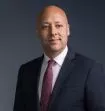- within Wealth Management, Law Practice Management and Coronavirus (COVID-19) topic(s)
On May 19, 2025, United States Deputy Attorney General (DAG) Todd Blanche issued a memorandum announcing the formation of the "Civil Rights Fraud Initiative," which "will utilize the False Claims Act to investigate and, as appropriate, pursue claims against any recipient of federal funds that knowingly violates federal civil rights laws." This initiative focuses on government contractors,1 institutions of higher education, and other recipients of federal funds through grants or awards.
The initiative follows President Donald Trump's January 21 Executive Order titled "Ending Illegal Discrimination and Restoring Merit-Based Opportunity," and United States Attorney General (AG) Pam Bondi's February 5 memorandum advising that the Department of Justice's (DOJ) Civil Rights Division will take efforts to "investigate, eliminate, and penalize illegal DEI and DEIA preferences, mandates, policies, programs, and activities in the private sector and in educational institutions that receive federal funds."
Summary of the Memorandum
The Civil Rights Fraud Initiative, co-led by the DOJ's Civil Rights Division and the Fraud Section of the Civil Division, will be charged with assessing whether any recipient of federal funds who "knowingly violates civil rights laws" and "falsely certifies compliance with such laws" has violated the False Claims Act (FCA). Each division must direct a team of attorneys to "aggressively pursue" such claims. The memorandum does not specify which of the 11 sections within the Civil Rights Division will lead that division's efforts. Historically, the Federal Coordination and Compliance Section of the Civil Rights Division has spearheaded the enforcement of Title VI, which would be the primary civil rights law potentially applicable to this initiative.
The memorandum notes that the DOJ's Civil Fraud Section and Civil Rights Division will "engage with" the Criminal Division and other federal agencies (the Department of Education, the Department of Health and Human Services, the Department of Housing and Urban Development, and the Department of Labor), but provides no enforcement details (including whether, or on what additional statutory bases, criminal investigation or prosecution may be pursued). The memorandum also directs each United States Attorney's Office to identify at least one Assistant United States Attorney "to advance these efforts." Notably, the Civil Fraud Section and the Civil Rights Division will partner with state attorneys general and local law enforcement "to share information and coordinate enforcement actions."
Finally, the memorandum "strongly encourages" private parties to file lawsuits under the FCA in order to share in any monetary recovery and asks anyone with knowledge of discrimination by recipients of federal funding to report that information to federal authorities.
Takeaways
While the memorandum lacks details, the creation of the Civil Rights Fraud Initiative clearly signals the Administration's commitment to aggressively implement President Donald Trump's January 21 Executive Order.
Educational institutions, government contractors, and private employers that receive federal funds should carefully evaluate their DEI policies and programs to ensure compliance with the federal civil rights laws, and prepare for potential federal investigations of—and challenges to—any DEI policies and hiring and personnel practices. DAG Blanche specifically asserts that "a university that accepts federal funds could violate the [FCA] when it encourages antisemitism, refuses to protect Jewish students, allows men to intrude into women's bathrooms, or requires women to compete against men in athletic competitions," and notes that "many corporations and schools continue to adhere to racist policies and preferences — albeit camouflaged with cosmetic changes that disguise their discriminatory nature."
In addition, government contractors and grant recipients should carefully review their contracts for terms related to civil rights and anti-discrimination compliance and ensure that their internal compliance programs are sufficient. President Donald Trump's January 21 Executive Order directed agencies to include certain discrimination-related prohibitions in all federal contracts and grant awards and to require antidiscrimination certifications.
Whether—and to what extent—these sorts of certifications will be enforced by courts under the FCA remains an open question. The provisions of the FCA require the government to show that a contractor or grant recipient had actual knowledge or a substantial reason to believe that a false statement was made; e.g., that their programs violated federal antidiscrimination law despite a certification of compliance. Even if a certified contractor is eventually found to have a noncompliant DEI program, the FCA provides that there will not be liability if the contractor's certification was predicated on a good-faith belief that its program was lawful. Consultation with experienced counsel before making these certifications is a best practice.
Footnote
1 In FY2024, the federal government awarded over $770 billion to more than 100,000 companies.
Visit us at mayerbrown.com
Mayer Brown is a global services provider comprising associated legal practices that are separate entities, including Mayer Brown LLP (Illinois, USA), Mayer Brown International LLP (England & Wales), Mayer Brown (a Hong Kong partnership) and Tauil & Chequer Advogados (a Brazilian law partnership) and non-legal service providers, which provide consultancy services (collectively, the "Mayer Brown Practices"). The Mayer Brown Practices are established in various jurisdictions and may be a legal person or a partnership. PK Wong & Nair LLC ("PKWN") is the constituent Singapore law practice of our licensed joint law venture in Singapore, Mayer Brown PK Wong & Nair Pte. Ltd. Details of the individual Mayer Brown Practices and PKWN can be found in the Legal Notices section of our website. "Mayer Brown" and the Mayer Brown logo are the trademarks of Mayer Brown.
© Copyright 2025. The Mayer Brown Practices. All rights reserved.
This Mayer Brown article provides information and comments on legal issues and developments of interest. The foregoing is not a comprehensive treatment of the subject matter covered and is not intended to provide legal advice. Readers should seek specific legal advice before taking any action with respect to the matters discussed herein.











